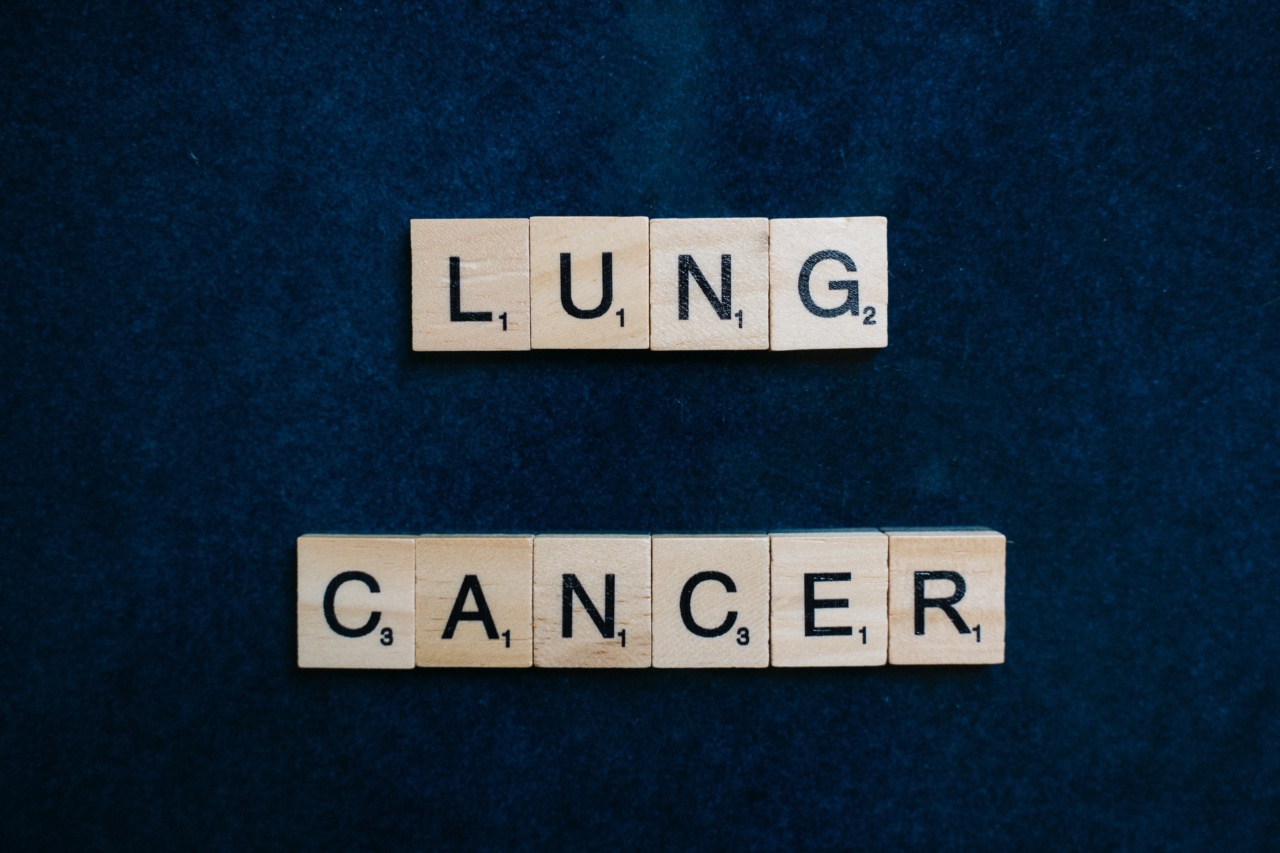Getting enough sleep is essential for maintaining good health and overall well-being. Sleep deprivation has been linked to various health problems, including an increased risk of developing chronic diseases.
One such disease that has been studied in relation to inadequate sleep is lung cancer.
The Importance of Sleep
Sleep is a vital physiological process that allows the body to rest and rejuvenate. During sleep, several crucial functions occur, including tissue repair, hormone regulation, and memory consolidation.
Lack of adequate sleep can lead to impaired cognitive function, reduced immune response, and increased risk of various health conditions.
Lung Cancer Overview
Lung cancer is one of the most common types of cancer worldwide. It occurs when abnormal cells grow uncontrollably in the lungs, forming tumors that interfere with normal lung function.
There are two main types of lung cancer: non-small cell lung cancer (NSCLC) and small cell lung cancer (SCLC).
NSCLC accounts for about 80% of all lung cancer cases and is usually associated with long-term tobacco smoking. SCLC is less common but tends to spread more quickly and aggressively.
Other risk factors for lung cancer include exposure to certain chemicals and environmental pollutants, genetic predisposition, and underlying lung diseases.
Effects of Insufficient Sleep on Lung Cancer Risk
Several studies have investigated the potential link between insufficient sleep and lung cancer risk.
While the precise mechanism is still being explored, researchers believe that inadequate sleep may contribute to an increased risk of developing lung cancer.
1. Altered Immune Function: Sleep deprivation can impair the immune system’s ability to function optimally.
A compromised immune system may have difficulty identifying and destroying cancer cells, potentially leading to an increased risk of cancer development, including lung cancer.
2. Inflammation: Lack of sleep has been linked to increased inflammation in the body. Chronic inflammation is a known risk factor for various cancers, including lung cancer.
Inflammation can contribute to DNA damage and cellular mutations that promote the growth of cancerous cells.
3. Hormonal Imbalance: Sleep deprivation disrupts the normal regulation of hormones in the body. Hormones play a crucial role in various physiological processes, including cell growth and differentiation.
Imbalances in hormone levels may disrupt the body’s natural defenses against cancer and potentially contribute to lung cancer development.
4. Impaired DNA Repair: Sleep is crucial for DNA repair processes to occur efficiently. Inadequate sleep may hinder the body’s ability to repair damaged DNA, increasing the likelihood of genetic mutations that can lead to cancer development.
5. Disrupted Circadian Rhythm: Insufficient sleep disrupts the body’s natural sleep-wake cycle, also known as the circadian rhythm.
Disruptions to the circadian rhythm have been associated with an increased risk of various diseases, including cancer. Proper sleep patterns are essential for maintaining overall health and well-being.
Evidence from Studies
Although more research is needed to establish a definitive link, some studies have provided evidence supporting the association between insufficient sleep and an increased risk of lung cancer:.
Study 1: A study published in the American Journal of Respiratory and Critical Care Medicine analyzed data from over 400,000 individuals and found that those who reported sleeping less than six hours per night had a higher risk of developing lung cancer compared to those who slept seven to eight hours per night.
Study 2: Another study published in the journal Cancer examined the sleep duration and lung cancer incidence in over 40,000 women.
The results showed that women who reported consistently short sleep durations had a significantly higher risk of developing lung cancer compared to those with longer sleep durations.
These studies suggest that there may be a correlation between insufficient sleep and increased lung cancer risk. However, it is important to note that more research is needed to understand the underlying mechanisms fully.
Importance of Healthy Sleep Habits
Given the potential link between insufficient sleep and lung cancer risk, it is crucial to prioritize healthy sleep habits. Here are some tips for promoting better sleep:.
1. Stick to a consistent sleep schedule by going to bed and waking up at the same time every day, even on weekends.
2. Create a relaxing bedtime routine that helps signal to your body that it’s time to wind down. This can include activities like reading a book, taking a warm bath, or practicing relaxation techniques, such as deep breathing or meditation.
3. Maintain a sleep-friendly environment by keeping your bedroom dark, quiet, and at a comfortable temperature.
4. Limit exposure to electronics, especially before bedtime. The blue light emitted by screens can interfere with your body’s natural sleep processes.
5. Avoid consuming caffeine, nicotine, and alcohol close to bedtime, as these substances can disrupt sleep patterns.
6. Engage in regular physical activity, but try to avoid exercising too close to bedtime, as it can stimulate the body and make it harder to fall asleep.
Conclusion
Insufficient sleep has been associated with various health risks, including an increased risk of lung cancer.
Although more research is needed to establish a definitive connection, preliminary studies suggest that there may be a correlation between inadequate sleep duration and lung cancer incidence. Therefore, maintaining healthy sleep habits and prioritizing sufficient sleep is essential for overall well-being and potentially reducing the risk of developing lung cancer.































